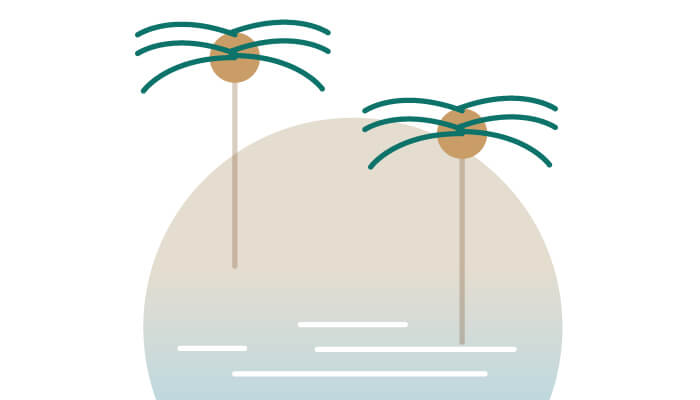Christopher Harrison
Associate Professor, Analytical and Bioanalytical Chemistry, San Diego State University, San Diego, California, USA.
I’m delighted to be attending this year’s SciX conference in Palm Springs, California. The event is just the right size, which means you can attend plenty of great presentations and meet peers (some old friends, some new) working on exciting and novel research ideas. I’m especially looking forward to the sessions on electro-kinetic separations organized by the AES Electrophoresis Society. What’s more, the keynote lecture on the role of artificial intelligence in analytical chemistry by Rohit Bhargava and the discussion on the role of women in this field with Rina Dukor are sure to be fascinating.
SciX has organized a special poster session for students from California’s two major public university systems in honor of this being the first SciX hosted in the state. Such a welcoming atmosphere is endemic to SciX, with the large number of social activities providing plenty of opportunity for networking. As a result, I don’t think I’ve ever returned home from a SciX with the impression I’ve missed anything important.
For 2019, I’ll have the privilege of acting as co-chair for the AES Mid-Career Award Symposium Honoring Chris Easley. The session will consist of five speakers, four of whom are thematically aligned with Chris’ work: Charles Henry, Michael Roper (last year’s award winner), Scott Martin, and Robbyn Anand. The symposium will finish with a final presentation from the recipient of the AES Blue Fingers Award – a young scientist recognized for publishing an outstanding paper.
And, last but not least, as the Local Chair of AES, I’ve been involved in the organization of the Wednesday night gala event – an offsite tour of a Palm Springs wind farm – and the route for the SciX bicycle ride. Ultimately, it is our goal to make the conference as open and welcoming as possible.
Greg Klunder
Chemist, Materials Science Division, Lawrence Livermore National Laboratory, Livermore, California, USA.
I’m always excited by the developments presented at SciX; with sessions that focus both on both analytical fundamentals and their application, the meeting provides a platform for new ideas that can be integrated into countless different projects. Like Chris, I’m particularly looking forward to the talk on the role of artificial intelligence in understanding and interpreting the large amounts of data obtained with novel technologies – I imagine this session will be a popular one.
The Forensics and Security component of this year’s conference will focus on applications, and there will be related sessions across technical areas, making this a well-represented topic. Betsy Yakes has also done a great job organizing the Food Forensics session, which will deal with some very topical issues. In addition, we’ve also added an Environmental Forensics session (organized by Mark Cejas) that will address techniques for fingerprinting crude oil and petroleum products.
The 2019 program also has an emphasis on isotope analysis – a predominant component of nuclear forensics. Though the identification of isotopic signatures is of great importance, there is growing demand for additional physical and chemical information from samples. And that requires the incorporation of many analytical techniques with more conventional forensic analysis to provide a more comprehensive understanding of the specimens in question.
I’ve been attending SciX for over 30 years because of the welcoming community and quality science. There is much to be learned from the various talks and posters, but it is in conversation with the other attendees that new ideas are often brought to life.
Mary Kate Donais
Professor of Chemistry, Saint Anselm College, Manchester, New Hampshire, USA.
As someone who teaches at a small college, I have a limited travel budget, but SciX is the one conference that I choose to attend every year because it’s so valuable to me as both an educator and researcher. The meeting plays host to the best combination of science, exhibits, networking and social opportunities. And, with respect to my own research, I’m always interested to hear about the diversity of measurement techniques and artifact types featuring in studies all over the world, with a wide range of art, archeology, and anthropology covered in the program. The forensic and chemometric sessions will also be fantastic to listen to, as these are areas that I use in my teaching and research.
I’ll be presenting a talk on X-ray fluorescence (XRF) spectroscopy and laser-induced breakdown spectroscopy (LIBS) for the study of archeological ceramics from an Etruscan excavation site in Italy. The study involved comparing various figures of merit for the portable analysis of pottery by XRF and LIBS, but the talk will also explore our efforts to establish limits of detection.
I’m also the Awards Chair for 2019 – a “training job,” if you like, in preparation for my appointment as Program Chair for SciX 2020! I’ve been organizing sessions at the conference for about 10 years, but there is something special about the Awards role – and interacting directly with this year’s recipients has been very rewarding. I’m excited to learn about these award-winning scientists’ work, and to meet any awardees I don’t already know.





